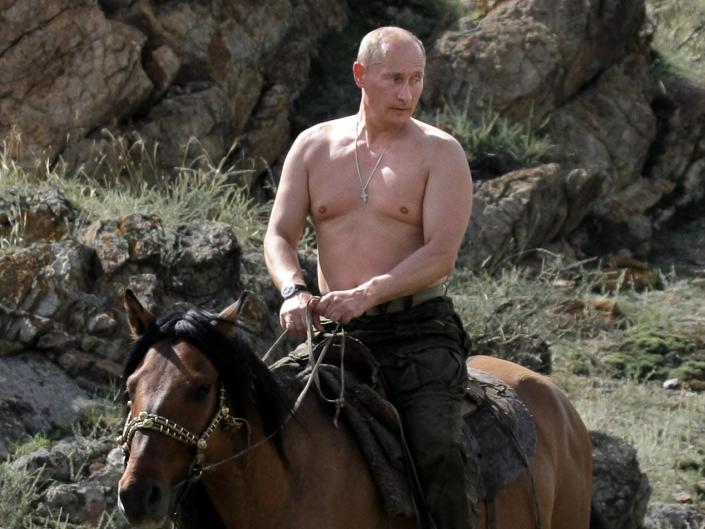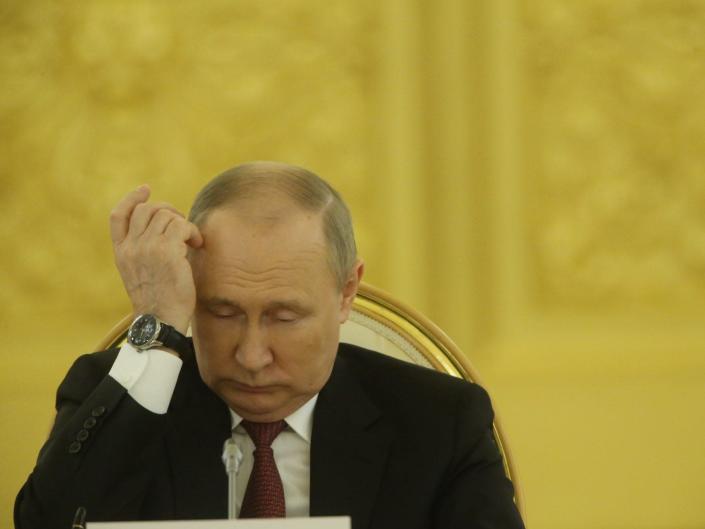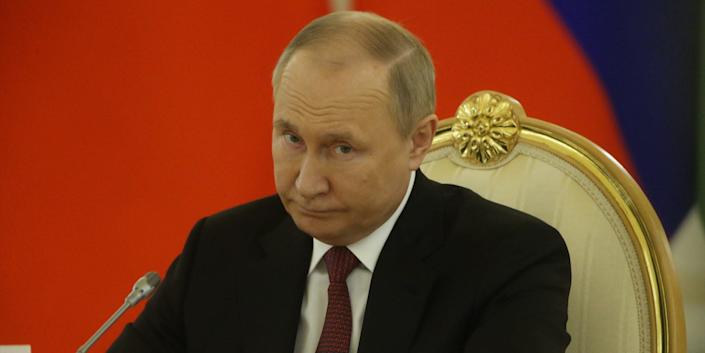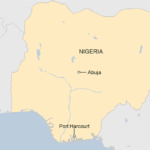
-
Ex-spies and Ukrainian officials have fueled speculation that Russian leader Vladimir Putin is in poor health.
-
But US intel and military experts say there’s no clear or credible evidence that Putin is unwell.
-
The rumors may be a sign of wishful thinking that Putin’s death would somehow end the brutal war, an expert said.
Rumors have been swirling in recent weeks that Russian President Vladimir Putin is unwell and somehow losing his grip.
The strongman and former KGB operative, who is pushing 70, has spent years trying to cultivate a macho image — riding a horse without a shirt on, playing hockey, and showing off his judo moves. Throughout his roughly two decades in power, Putin has been thought of as a calculated, emotionless leader. But the bare-chested equestrian’s disposition has seemingly shifted since he launched an unprovoked, full-scale war in Ukraine back in late February. His cheeks are puffy, he’s fidgety, and his speeches bombastic and filled with vitriol.
The war in Ukraine has been so disastrous for the Russian military that many have begun to wonder what led Putin to miscalculate so badly. Some have guessed that he’s suffering from mental decline. Others have rumored that Putin is seriously ill, drawing broad conclusions from minute aspects of his behavior. Even the wiggling of the Russian leader’s foot has been enough to prompt a wave of speculation over his health.
But three intelligence and military experts in the US who spoke to Insider say they’re not putting much weight on the continuing speculation that the Russian leader is in physical decline — a theory that has not been endorsed by doctors or medical experts.
Jeffrey Edmonds, former director for Russia on the National Security Council and an ex-CIA military analyst, told Insider he’s “not seeing anything truly credible” to back-up the notion that Putin is unwell.
“What I and others have seen is a definite change in his demeanor,” Edmonds said, adding that Putin is “normally the voice of calm in Russia but publicly has become more emotional and angry.” This suggests that Putin is “not comfortable with something,” Edmonds added.
Putin is overseeing a war that’s estimated to have killed 15,000 Russian troops, possibly far more, in a matter of months. A staggering number of Russian generals have been killed. Ukrainian roads have effectively become graveyards for Russian tanks. The Russian military, which was widely expected to roll over Ukrainian forces within days, failed to take Kyiv.
Meanwhile, the US and its allies have moved to isolate Moscow both economically and politically, slapping a slew of unprecedented sanctions on Russia that have contributed to skyrocketing inflation and supply shortages reminiscent of the Soviet era. The head of Russia’s central bank this week warned that the coming months would be “difficult for both companies and citizens.”
But Putin has shown no signs of giving up. He’s been obsessed with Ukraine for years — essentially viewing it as territory that belongs to Moscow — and top Russia watchers say Putin will never abandon his goal of subjugating Ukrainians. As long as he’s in the Kremlin and oversees the largest nuclear arsenal in the world, Ukraine faces an existential threat.
With so much power centralized in Putin, his health is an understandable subject of interest for both the public and intelligence community. That said, it’s still a topic that even US spy agencies are likely in the dark about, the experts said.
Wishful thinking


The conjecture over Putin’s health has emanated from a number of questionable sources.
Ukraine’s military intelligence chief, Major General Kyrylo Budanov, in a mid-May interview with Sky News claimed without evidence that Putin has cancer and said that a coup to supplant the Russian leader was in motion.
Meanwhile, ex-British spy Christopher Steele recently told Sky News that Putin is “increasingly ill” and his leadership is in jeopardy. Steele — who’s known for compiling the discredited dossier filled with salacious, unverified claims about Donald Trump’s Russia ties — cited unnamed “sources in Russia and elsewhere.”
Lawmakers in Washington like Sen. Marco Rubio of Florida, the top Republican on the Senate Intelligence Committee, have also chimed in. “I wish I could share more, but for now I can say it’s pretty obvious to many that something is off with Putin,” Rubio said in a tweet in late February.
The fact that many of the recent claims on Putin’s health have come from Ukraine’s military intelligence chief, who might be trying to undermine the Russian leader’s authority and sow discord in the halls of the Kremlin, offers fair reason to question their veracity.
Reporting from the Russian outlet Proekt has turned up evidence that Putin has chronic back problems, that he has repeatedly disappeared from public view for several days, and that he has at times traveled with an extensive medical team. But none of that behavior is especially unusual for a 69-year-old autocrat bent on staying in power for life.
The rampant speculation may also be a sign of wishful thinking that Putin’s death would somehow end the brutal war, said Kevin Ryan, a retired US brigadier general and former defense attaché to Russia. Ryan said he’s not seen “any evidence” that Putin is close to death or suffering from something that debilitates him, and emphasized that even if he died it wouldn’t necessarily foster a ceasefire or end to hostilities in Ukraine.
“Of course everyone is going to die, but I don’t think this war is the creation of only Putin,” Ryan said, adding, “His death might affect its course, but the ruling circle which supported him will still be there.”
‘This is all circumstantial’


A great deal of the theorizing over Putin’s health has been a product of discussion over his physical appearance and behavior in public.
British tabloids and various commentators have suggested Putin has Parkinson’s disease, zeroing in on the Russian leader tapping and twitching his foot during meetings. Others have focused on Putin’s face appearing more bloated than usual as potential evidence that his health is in poor shape. But these are not, by themselves, inherent signs of a serious medical condition.
“I can find no evidence that I can tell of parkinsonism in Putin,” Ray Chadhuri, a neurologist at the University of London, told DW in April after viewing a video clip of Putin with Russian Defense Minister Sergei Shoigu that was at the center of the Parkinson’s speculation.
Former Director of National Intelligence James Clapper told Insider he was struck by recent images of Putin showing him with a swollen face, which he said raised questions as to whether the Russian leader might be receiving some form of treatment that’s causing the swelling. But Clapper underscored that “this is all circumstantial,” and said he doubts whether the US intelligence community “knows for sure whether he’s ill or not.”
“That sort of info is traditionally very hard to come by,” Clapper said, adding that it’s still a “legitimate line of inquiry.”
Read the original article on Business Insider




